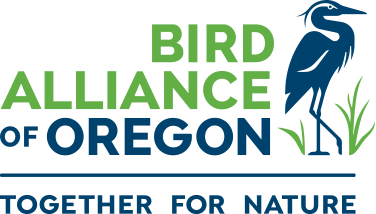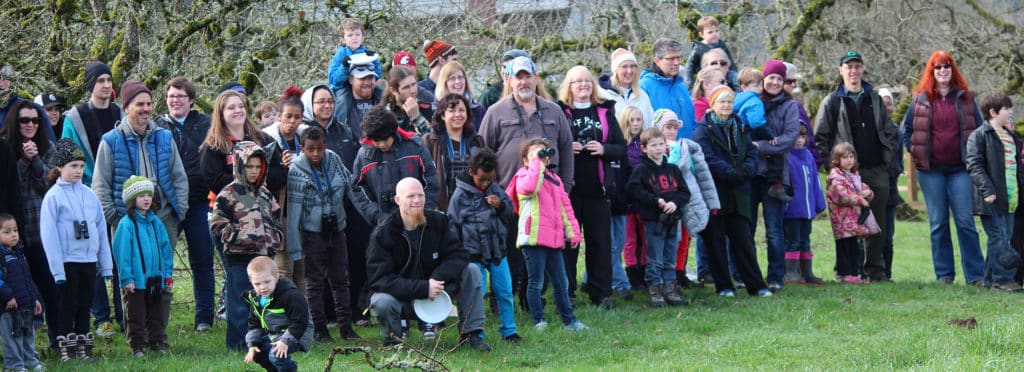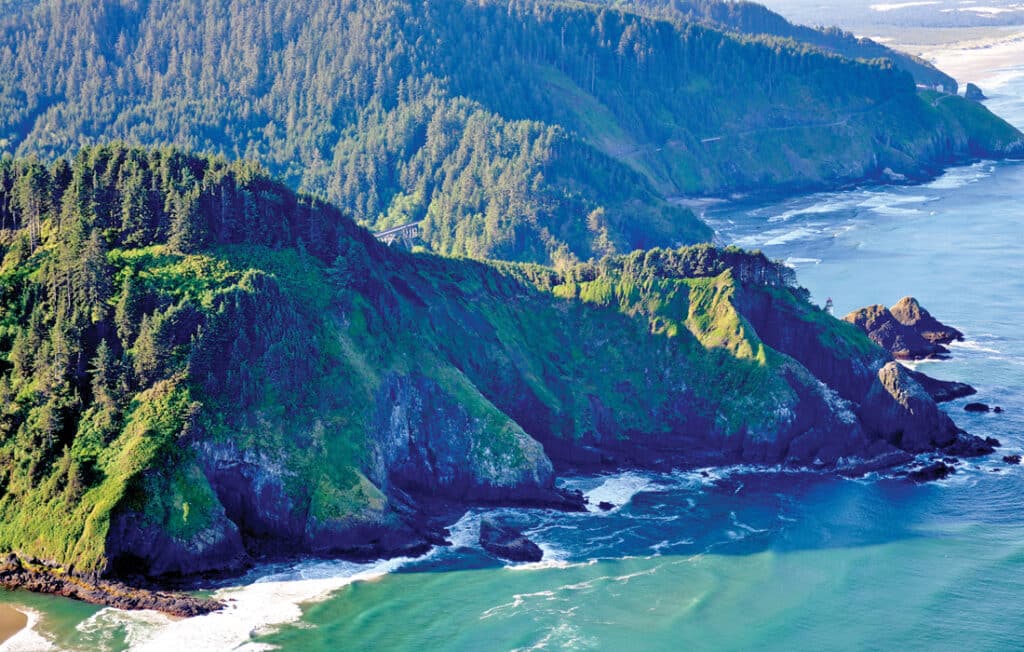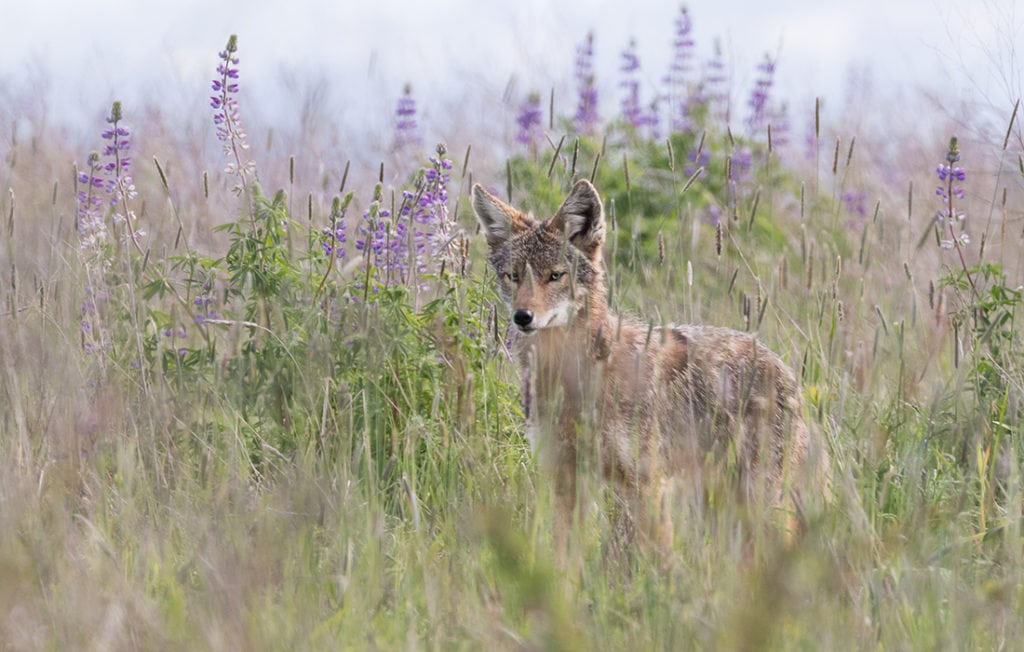Why is conservation important to you?
I think it mostly comes from two sources: the way I was brought up and where I come from. I was born and raised in Mongolia, the most sparsely populated unitary sovereign state in the world. Forty percent of Mongolians still lead a nomadic herder lifestyle. Even if you live in a major city, you still have many close friends and family enjoying life in the steppes, mountains, and spending time in the great outdoors is the favorite pastime of the people. Culturally and historically, Mongolians were always one with nature and wildlife.
Although Mongolia is still an untapped country with pristine nature and one of the last remaining truly nomadic cultures, it is also dealing with significant threats to the environment made both by humans and climate change. Overgrazing, human factors of deforestation, poaching, air and soil pollution are among the top man-made threats. Mongolia has also been disproportionately affected by the impacts of climate change. Eighty percent of the country’s territory is under some level of desertification, while the average temperature in Mongolia increased, from 1940 to 2008, by 2.14C, three times the global average of 0.74C. I think when the environmental degradation is more evident and felt in everyday life, you want to do more and contribute in the ways you can.
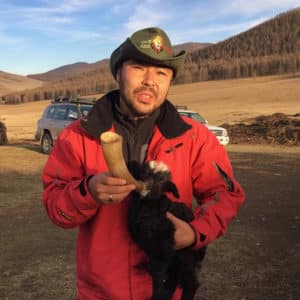
You served as the CEO and Board Director of Arig Bank of Mongolia for 12 years. What inspired you to make the full jump to conservation?
Part of the reason was realizing my passion and what is more meaningful to me at this stage of my life. Through my banking work, I was fortunate to be able to initiate, collaborate and lead numerous social and environmental projects with partners from the public and private sectors including the Ministry of Tourism and Environment, United Nations Environment Programme, international development banks, green funds, and international conservation organizations. Along the process, I found myself enjoying sustainability and conservation work a great deal, and the decision to go into conservation full time was the result of three years of consideration and soul searching.
While working in the banking industry, you also started a conservation nonprofit, Spirit Mongolia. Can you tell me about what it does and why you co-founded the organization?
Spirit Mongolia (SM) is a nonprofit that conducts community-based conservation work. The main work is protecting forests and helping with regeneration. We work on anti-poaching of species like marmots, wolverines and snow leopards. We learned the hard way that livelihood improvement has to go alongside conservation work, because poverty and lack of sustainable sources of income result in people abusing the environment and wildlife. SM provides small amounts of income to local communities by developing operations such as sustainable tourism and forest management.
The area we are working in is the birthplace of my father. He’s the fourth generation from that region. He was the first person in his family to move to a city and get a formal education, upon the insistence of his parents. Every summer my parents took us on a family vacation, specifically to this area, when we were kids. Over the years, we noticed lands degrading, rivers drying up, pastures deteriorating, forests being destroyed from arson or illegal wood logging. For instance, illegal wood loggers would set fire to a forest to bypass logging bans and avoid patrols, because by law burned forests can be logged for “cleaning.”
In 2014 when my father and I were visiting the families we know on the land, they asked us for help, stating that they had tried in many different ways to fight these illegal activities but had been overpowered. Initially my father and I thought that this was far out of our league. But after we got back home, it just kept eating me. I couldn’t forget about it so I started researching. I discussed it with my father and he loved the opportunity to do something for his birthplace and in honor of his ancestors. That’s how we started.
What brought you to Portland?
It was a number of considerations. One of the biggest duties we felt as parents was to get our kids out of the air pollution in Ulaanbaatar. We were considering a few different cities with clean air. Portland’s reputation as one of the world’s most environmentally conscious cities was a major attraction for us. The large public parks system, high walkability, cycling and public transportation infrastructures, healthy, active lifestyle of the people were all important factors for us that Portland possessed.
It was important to me to be close to mountains, forests and nature. Also my friend Jon Lyons, who is from Portland but living in Mongolia for the last decade or so, was a great advocate and ambassador for Portland. Since we arrived in Portland we have been greeted with nothing but warm welcome. Everyone we met has been wonderfully friendly and wanting to help, introducing us to their friends and family. It’s been a very nice, warm place for us so far.
What brought you to Bird Alliance of Oregon?
I knew I wanted to go into conservation and I wanted to join a grassroots organization with a longstanding history. Bird Alliance of Oregon fit all the requirements that I had. That’s when I looked up the contact information of Bird Alliance of Oregon’s volunteer manager, the name was Vicky Medley. I sent her an email to sign up as a volunteer looking for a way to get involved. In the same way we have been treated by the people of Portland, Vicky responded to my email immediately, invited me to visit Bird Alliance of Oregon, and greeted me with a warm welcome. She gave me information on upcoming vacancies, including the COO position. I feel fortunate about the good timing that I encountered because the organization happened to be seeking someone with finance and operations experience.
